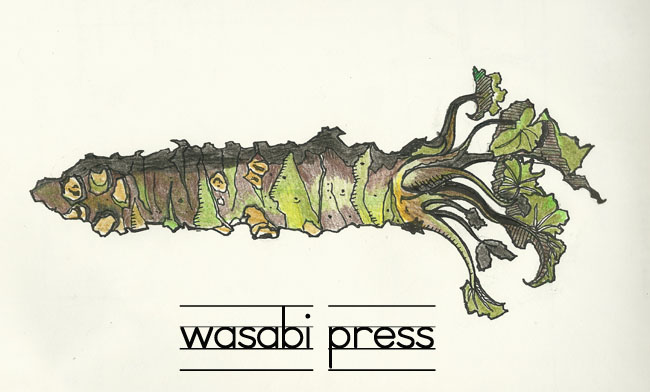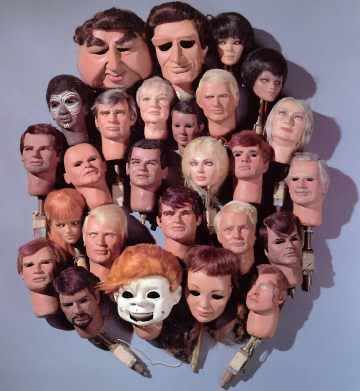
I am grieved to make this post a memorial to the talented avant-garde trombonist, Toyoji Tomita, who died unexpectedly of a heart attack this morning.
I met Toyoji through an odd, round-about connection. I had first befriended his mother of all people, Nisei writer Mary Tomita ("Dear Miye: Letters from Japan, 1939-1946"), and felt an uncanny connection with her from the moment I first stumbled across her book. "Dear Miye" is a memoir in the form of one-sided correspondences between Mary (who was accidentally stranded for most of the duration of WWII in Japan, while her family was interned in the US.) and her best friend, Miye, who, like the Tomita family, was forced out of their homes and farms in California's Central Valley, and sent into one of ten American internment camps. "Dear Miye" had a tremendous impact on me, as so many things about Mary's life somehow paralleled and resonated deeply within me. Thus, I was overjoyed to learn that she was still very much alive and living not but 5 miles away from me, in Oakland. We met and stayed loosely in touch for a few more years (one incident I remember poignantly was being invited over for lunch at her house with several other prominent Asian American women activists in attendance, including the renowned Yuri Kochiyama).
On one such occasion, I learned that Mary had a son. Toyoji Tomita, who was not only helping to arrange for his mother's book to become the libretto for an opera, but who had founded the Mills College Dijeridoo Ensemble (!!) and was an active member of the Bay Area new music community, the very same circle of musicians that my boyfriend belonged to. It didn't take long for us to meet- often during cigarette breaks outside the warehouses or theaters where Toyoji and Bill would both be performing. At one particular concert for SF Sound, Toyoji and I stood out on the curb and I mentioned that I knew his mother. He nodded between drags and acknowledged that he knew who I was too. Later, there were longer talks about his music, literature, his mother, and the kind of research and writing I was engaged in. Always the burnished warmth of his eyes behind his glasses, the mouth of a lifelong brass player, enabling a smile.
I did not know Toyoji very well, and our conversations were brief. But our paths crossed right at the juncture of art and life and ancestry, and it is one of the reasons why I grieve today. Having seen him on stage on numerous occasions and knowing the wild and sonorous kind of improvisational music that he favored, I can only imagine how much depth there was to his soul and intellect. The world of sound, in its boundless palette, is that much greyer today with the loss of Toyoji Tomita's song.
An article on Toyoji Tomita appeared in Asian Week in 2004:
link here



6 comments:
i'm a little late in reading this, but glad you wrote about it. i felt like i had a chance to get just a glimpse into an interesting and important life.
I grew up with Peter having been his brother's good friend Paul for two decades and I knew his mother Mary who later told me Peter had changed his name to Toyoji a name I never heard before. Growing up in Oakland myself I had known the Tomita family but lost contact with them for many decades only knowing of their passing away through the Internet We grow up go our different directions not knowing if we will ever see one another again the Internet keeps us posted. Many of days I think of the Tomita family even though it's been a long long time and we live so close and for decades we were friends how time has past us by.
If only Peter kept a blog on his life or on his family I would have read it. I knew the family when I was a young boy in the 50's and in the 60's as we grew into our teens we kept in touch and played together knowing each other through the sport of tennis. Peter(Toyoji) had not changed his name yet His older brother by a few years Paul was my close friend has also since passed away but I did not find out until many decades until I was way into my middle age not that years from now. His mother Mary I knew as a librarian and I figured this was how her son Paul my close friend was able to ace out his test scores for his college entrance examinations because he often read books often when I visited him at his house he had books scattered every which way within his house; the memories of the Tomita family will never elude me.
But perhaps best I knew his mother Mary Tomita through Paul the older brother of Peter or Toyoji. Mary told me Toyoji was the name he preferred to be called. I currently keep a blog called It Never Takes A Genius and comments there are welcomed. Toyoji's older brother Paul was a buddy of mine and his mother when she was alive told me he had passed on yet I keep searching for his existence since I had not seen him for forty years since 1971; as teenagers I was a tennis partner to Toyoji's brother Paul. Yes I knew the whole family from the 1950's to the beginning of the 1970's at times we took trips together Paul and his Mother and I. Mary's son Paul was my friend and I shall miss her older son Paul dearly let him not be forgotten.
My main blog is called Nerves Galore where it begins with my experiences playing chess that there is a close parallel with each move of a chess piece so important as in life. Every move is significant. You cannot exclude chess as a type or form of intelligence test for such a game has been around since the dawn of humankind. Once one is established in the game of chess you can always be counted in. For instance once a chess player is good enough to become a grandmaster at chess (tournament competitor) he can never lose that title. This is well known in the field of chess. Even the debilitating disease of Parkinson's cannot take away the character the mind of an accomplished chess player. Now the essence of my writing concentrates on racism and the need to understand it better eventually it will be only a blip of the past. Believe it or not there was a close correlation between the Tomita family I knew and the then popular television series at that time "Leave It To Beaver". This was America and we lived the good life but yes there were a few problems that needed attention. My good friend Paul will never be forgotten in as much that no one else has mentioned his name in print but he was my friend and I will always honor him. Not even the worst disease can take away my memory or my soul for the good things in life for the soul never dies.
I met Toyoji in 1973. Wild-eyed Peter Toyoji Tomita was jogging down the six-lane freeway in southern Oregon, trombone case under his arm. He was hitchhiking to Oakland from somewhere in Canada where he had failed another orchestra audition. I was returning to the Bay Area from Eugene in the fall of 1973, and I stopped the Valiant to pick him up. As he later proved by winning the 1977 international Gaudeamus competition for best young contemporary music interpreter alive, Toyoji was among the world’s top trombonists. He said Asians weren’t being hired by North American symphony orchestras. Peter spent the entire ride with head out of window recovering, sniffing the breeze. He took me to the apartment house he managed in East Oakland and rented me an apartment. Peter (as he was known then) regularly made gourmet - and I mean world-class, paired with perfect wines - meals for his tenants from ingredients he liberated from the local supermarket. He also had a knack for sneaking in to movies and on important S.F. Opera nights would dress in black tie and wander in to the opera without paying. He was the ultimate starving student.
A few years later Toyoji won the international competition that took him to France (I was living there tuning pianos). Peter had Paris figured out. His apartment, at tiny rent, was a maid’s 6th floor walkup. After less than a year his French was already fluent, he knew every great spot to eat and to drink great wine cheap, and he made more money busking as a trombone clown with a red rubber nose than I made tuning in the Paris Opera or the Restaurant Jules Verne on the second floor of the Eiffel Tower with my dog Jeckel tied to the base. He made regular calls, again on no money, to friends in California when he figured out that international pay phones allowed a second or two before charging. Spitting out in record time, "Hello, this is Peter in Paris!"
Post a Comment